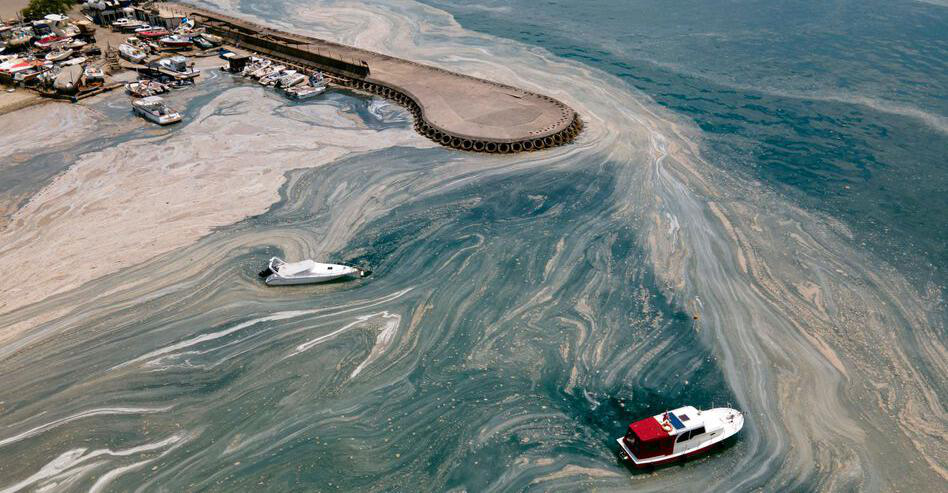The sea mud disaster in the Turkish Sea of Marmara had a significant impact on the inland sea ecosystem. “60 percent of the species have disappeared,” said aquatic biologist Levent Artus of the German news agency DPA. In May of this year, the mud disaster clearly erupted in the Marmara Sea. Mud was surfacing in many places, washed up on the coast and sometimes made it impossible for fishermen to fish. The sticky mass is the product of the secretion of some algae. Sooner or later it will settle to the bottom of the sea. According to experts, algae reproduce through high temperatures, untreated sewage discharged directly into the sea, and low flow rates.
This has negative consequences, especially for organisms that live on the sea floor. Mussel growth is slowing, and soft corals covered in mud can’t do their real job, that is, filter the water, said Ekin Akoglu, a marine biologist at Turkey’s Odtu University. In the long run, the lack of oxygen also reduces the zooplankton in the water, which many fish feed on.
No improvement in sight
Even if slime hasn’t visibly surfaced since August, the disaster is by no means over, said Mustafa Sari, professor of water resources management at Turkey’s Bandirma Unidi Eylul University. The layers have sunk and begun to decompose. The decomposition of marine slime uses up the oxygen in the water, among other things, which in turn leads to the formation of new marine mud.
Conditions are particularly favorable in October for a new outbreak, Sarri said. So he expects the slime to be visible again on the surface in November. Artoz, for example, fears the spread of slime in the Black and Aegean Seas and warns of a regional environmental crisis. Together with 20 experts, Artoz has been monitoring the plague’s spread at 450 points since the beginning of the year. The marine mud has “irreversibly” damaged the ecosystem of the Marmara Sea.
The government responded to the outbreak in May and wiped out parts of the slime. However, experts agree that these measures are not enough. Artoz says the discharge of untreated sewage should stop immediately. “After three decades of heavy pollution, the Marmara Sea is now a dead sea.” He hoped that the surrounding waters would not face a similar future.

“Food practitioner. Bacon guru. Infuriatingly humble zombie enthusiast. Total student.”







More Stories
KaDeWe stops selling meat and sausages
Another earthquake near the giant Naples volcano
Trump wants to block Harris' access to donations